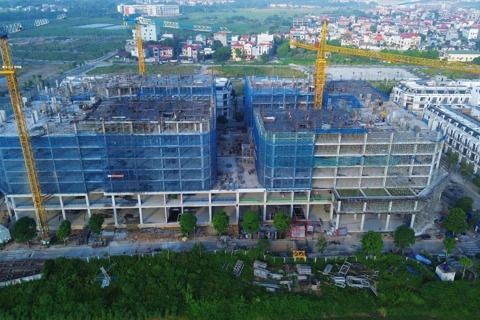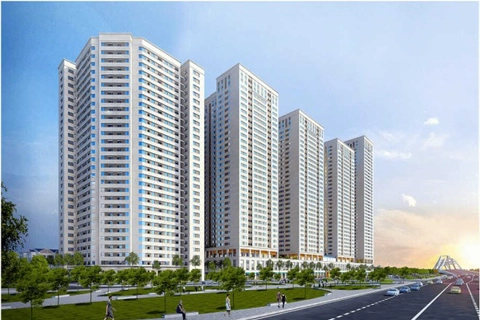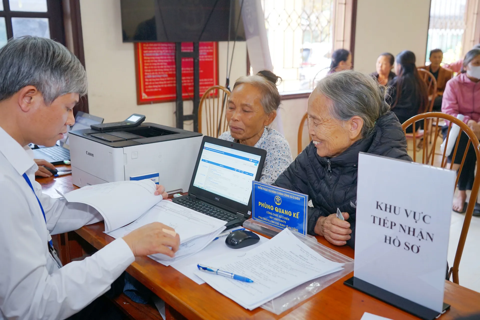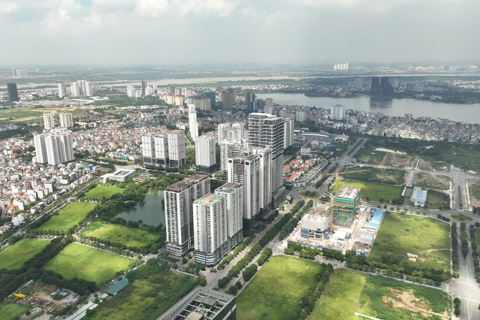Property
Vietnam continues offering soft loans to low-income homebuyers
Jan 30, 2019 / 11:02 AM
The government is able to fund roughly 30% of total capital required for low-cost housing projects amid growing demand for this segment.
The Vietnamese government will continue provided loans for low-income homebuyers at affordable interest rates in a bid to ensure sufficient housing supply for a large number of people.
The Vietnam Bank for Social Policies (VBSP), one of the two policy banks in the country, is going to set a maximum interest rate of 4.8% for those who borrow money to buy affordable houses, according to the government’s recent decision.
In 2019, VBSP plans to offer VND1.3 trillion (US$56.5 million) worth of soft loans to low-income homebuyers, up 30% from the 2018’s outstanding loans in this housing segment.
Seeking private capital
Demand for low-cost housing is forecast to surge from now through 2020 and the Vietnamese government is seeking private capital for this housing segment, reports from a recent conference showed.
At least 1.7 million people and another 1.7 million workers are in need of accommodation by 2020, requiring quick preparations for the housing projects, Nguyen Van Sinh, deputy ministry of Construction said at the event held in Hanoi last week.
By the year, Vietnam needs to build at least 12.5 million square meters of accommodation for low-income earners in urban areas, Sinh said, adding that the figure could meet maximum 80% of the total demand.
To lure more investment into this housing segment, the government has offered a series of investment and tax incentives namely lend tenure fees and reduction or exemption of corporate income tax and value added tax.
Beneficiaries of social housing are state cadres, including low-ranking armed forces officers who are in need of accommodation, and low-income earners who meet additional requirements given by the authorities.
Tran Huu Ha, director of AMC Academy, recommended that the government should tap advantages of the golden population period by ensuring enough housing supply for the youths whose capacity is one of key factors for the sustainable growth.
In an effort to ensure accommodation for low-income people, the government offered in 2012 a three-year preferential loan worth VND30 trillion (US$1.4 billion) to developers who conducted low-cost housing projects in Hanoi and Ho Chi Minh City. But the project remains modest compared to the actual demand which is estimated to 110,000 apartments in Hanoi.
The price of social housing is maximum VND15 million (US$646)/square meter. Beneficiaries include those owning no domiciles or dilapidated houses, some soldiers and policemen in the payroll of the armed forces, some civil servants, and low-income people.
The Vietnam Bank for Social Policies (VBSP), one of the two policy banks in the country, is going to set a maximum interest rate of 4.8% for those who borrow money to buy affordable houses, according to the government’s recent decision.
In 2019, VBSP plans to offer VND1.3 trillion (US$56.5 million) worth of soft loans to low-income homebuyers, up 30% from the 2018’s outstanding loans in this housing segment.
Seeking private capital
Demand for low-cost housing is forecast to surge from now through 2020 and the Vietnamese government is seeking private capital for this housing segment, reports from a recent conference showed.

A social housing project. Photo: Viglacera
|
By the year, Vietnam needs to build at least 12.5 million square meters of accommodation for low-income earners in urban areas, Sinh said, adding that the figure could meet maximum 80% of the total demand.
To lure more investment into this housing segment, the government has offered a series of investment and tax incentives namely lend tenure fees and reduction or exemption of corporate income tax and value added tax.
Beneficiaries of social housing are state cadres, including low-ranking armed forces officers who are in need of accommodation, and low-income earners who meet additional requirements given by the authorities.
Tran Huu Ha, director of AMC Academy, recommended that the government should tap advantages of the golden population period by ensuring enough housing supply for the youths whose capacity is one of key factors for the sustainable growth.
In an effort to ensure accommodation for low-income people, the government offered in 2012 a three-year preferential loan worth VND30 trillion (US$1.4 billion) to developers who conducted low-cost housing projects in Hanoi and Ho Chi Minh City. But the project remains modest compared to the actual demand which is estimated to 110,000 apartments in Hanoi.
The price of social housing is maximum VND15 million (US$646)/square meter. Beneficiaries include those owning no domiciles or dilapidated houses, some soldiers and policemen in the payroll of the armed forces, some civil servants, and low-income people.








